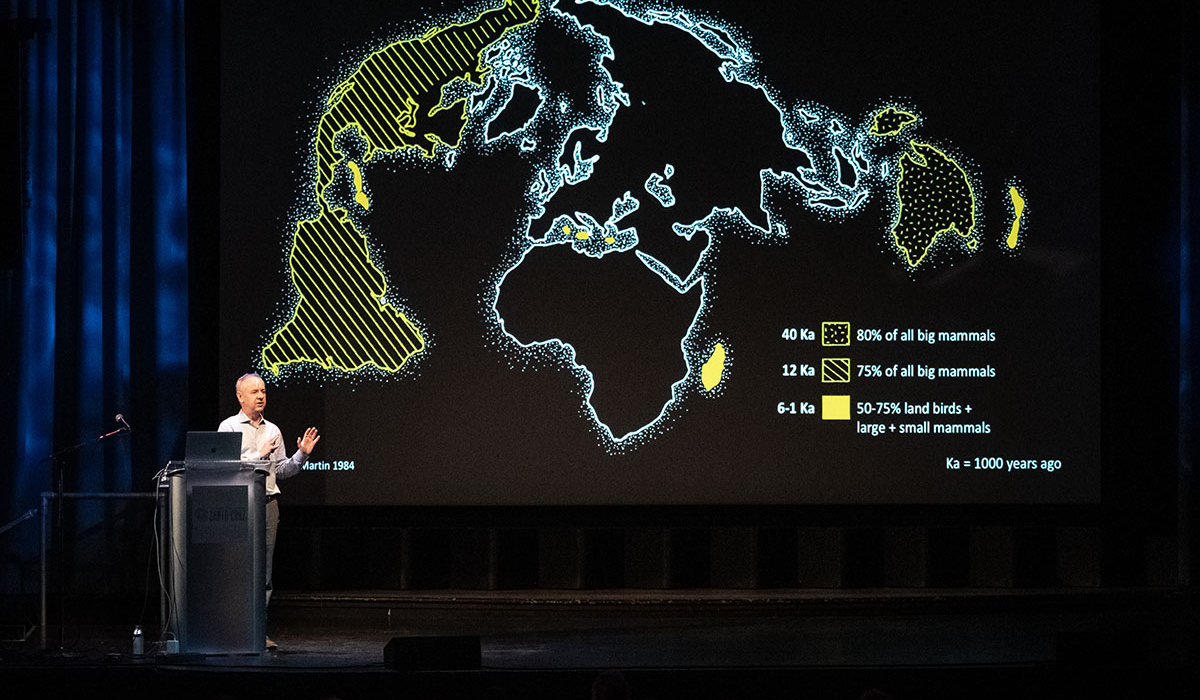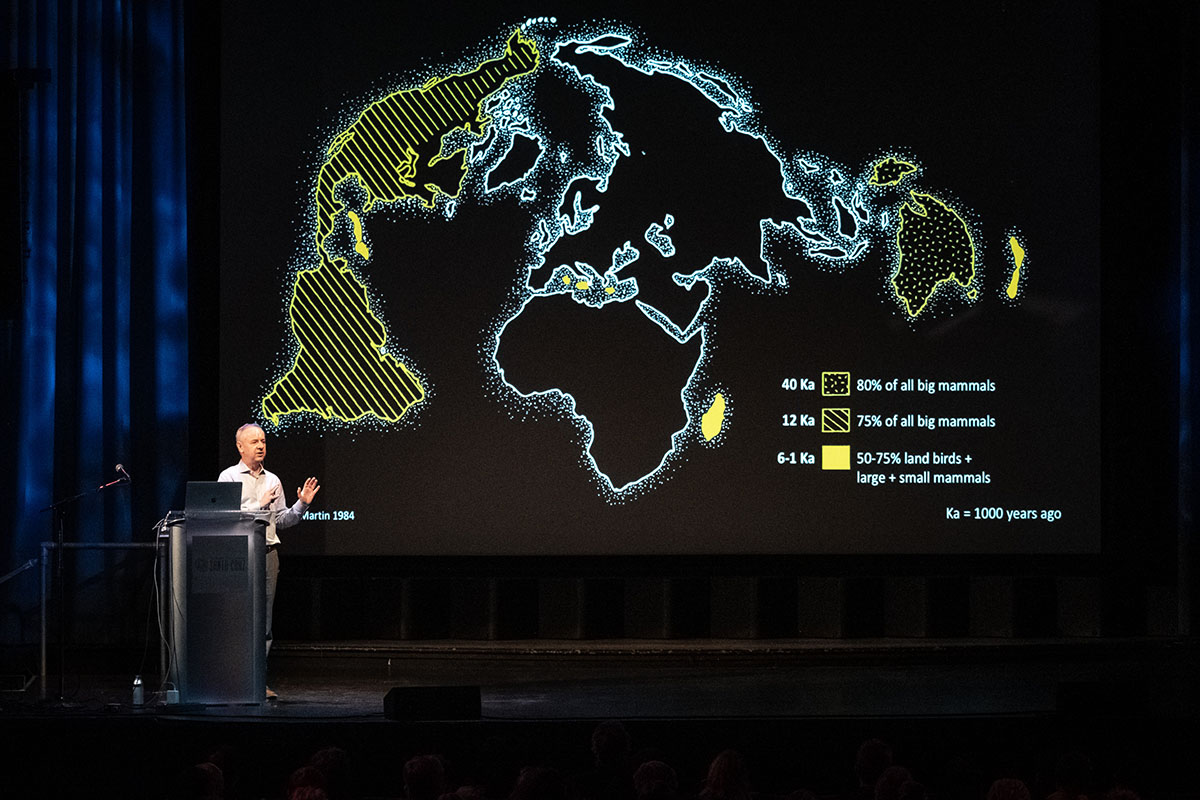Seeing Through Stone: Sonny Trujillo’s Voice from Within
Remy Francisco, October 25, 2024 At 63 years old, Sonny Trujillo stands upon a collapsed prison surveillance tower. He paces five steps...
IAS & Santa Cruz Barrios Unidos Galleries will be closed Dec. 21, 2024–Jan. 1, 2025.



Karen Tei Yamashita, “KonMarimasu”
Paul Koch, “Ancient human impacts on large animal communities”
Nidhi Mahajan, “Silences and Specters of the Indian Ocean”
David Haussler, “The Challenge of Understanding Human Brain Evolution”
Karen Tei Yamashita (Professor Emerita of Literature and Creative Writing at the University of California, Santa Cruz) is the author of Through the Arc of the Rain Forest, Brazil-Maru, Tropic of Orange, Circle K Cycles, I Hotel, Anime Wong: Fictions of Performance, Letters to Memory, and, forthcoming, Sansei & Sensibility, all published by Coffee House Press. I Hotel was selected as a finalist for the National Book Award and awarded the California Book Award, the American Book Award, the Asian/Pacific American Librarians Association Award, and the Association for Asian American Studies Book Award. Yamashita is recipient of the John Dos Passos Prize for Literature and a US Artists Ford Foundation Fellowship.
Paul Koch (Professor, Earth and Planetary Sciences; Dean, Division of Physical and Biological Sciences) is a paleontologist and geochemist at UC Santa Cruz. His research explores how environmental factors drive extinction, evolution, and ecological change in organisms, past and present. In nearly 150 papers, he has studied a wide range of organisms (e.g., giant land mammals, marine mammals, humans and other primates, crocodiles, condors, sharks, and land plants) based on work in the Americas, Asia, Africa, and Antarctica. He is a fellow of the AAAS, Geological Society of America, and California Academy of Sciences.
Nidhi Mahajan (Assistant Professor, Anthropology, University of California, Santa Cruz) Nidhi Mahajan is currently working on a book project “Moorings: The Dhow Trade, Sovereignty and Capitalism in the Indian Ocean” that focuses on trade networks, illegality/legality, vernacular capitalism, shipping and state power across the Middle East, South Asia, and East Africa. She has also curated exhibitions in Kenya, India and recently participated in the 2019 Sharjah Architecture Triennial.
David Haussler, Ph.D. (Investigator, Howard Hughes Medical Institute; Distinguished Professor, Biomolecular Engineering, University of California; Santa Cruz Scientific Director, UC Santa Cruz Genomics Institute, University of California, Santa Cruz; Scientific Co-Director, California Institute for Quantitative Biosciences) develops statistical, algorithmic and experimental methods to explore molecular function and evolution in the human genome, integrating comparative and high-throughput genomics data to study gene structure, function, and regulation. He develops and shares infrastructure to support both basic research and medicine. In the 1990s, he pioneered the use in genomics of hidden Markov models, stochastic context-free grammars, neural networks and discriminative kernel methods, building some of the most successful computational methods to find genes in genome sequences and align them to detect evolutionary changes. As collaborators on the international Human Genome Project, his team created the first publicly available computational assembly of the human genome sequence and posted it on the Internet on July 7, 2000. They subsequently developed the UCSC Genome Browser, a web-based tool that is used extensively in biomedical research and serves virtually all large-scale vertebrate genomics projects including NHGRI’s ENCODE project and the NCI’s Cancer Genomics Atlas Project, where he served on the steering committee. More recently they developed the BRCA-exchange, which, with >20,000 variants of the BRCA1 and BRCA2 genes, is the largest public data network for BRCA variants in the world and the Treehouse Childhood Cancer Project to enable international comparison of childhood cancer genomes with a special emphasis on pediatric brain cancer. His experimental research focuses on the molecular evolution of DNA, RNA, and protein sequences with a special emphasis on neurodevelopment and immunology. His lab uses CRISPR, cortical organoid, single cell RNA-seq and other technologies to functionally characterize neurodevelopmental genes that were specifically altered in human evolution. His team develops and shares infrastructure to support both research in and the clinical application of precision medicine.